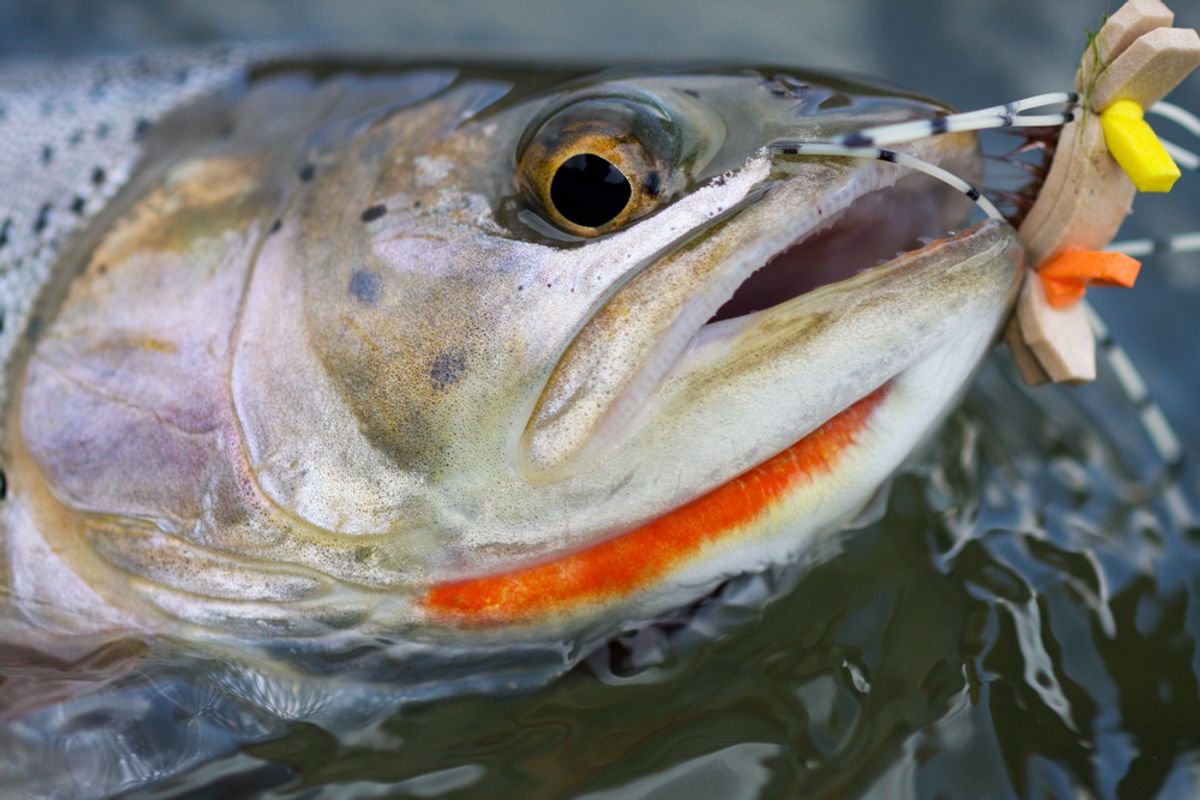After 12,000 years of adaptation and survival in local streams, Montana's cutthroat trout may have finally met its match. An invasive species introduced by government fishery managers is messing with the native trout's gene pool, ecologists with the U.S. Geological Survey report, and climate change is helping the process along.
Their study, published in the journal Nature Climate Change, provides a tragic example of the way in which warming temperatures threaten biodiversity.
Here's what's happening: Decades back, government fishery managers introduced rainbow trout into Western lakes and streams so that anglers would have more to catch. In Montana, the fish tended to hang out down in the valleys, keeping their distance from the cutthroat trout, which were accustomed to the chillier waters upstream. All was well. Then climate change came along and messed with the status quo: The past decades have seen reduced stream flow in the higher elevations, and the remaining water is a lot warmer than it used to be, drawing the rainbow trout further upstream than they'd normally venture. Once there, they've started mating with the cutthroats, creating a brand-new hybrid trout.
“If these nonnative rainbow trout populations persist, we think the writing is on the wall and there will be the loss of these native cutthroat trout, a genomic extinction,” study author Clint Muhlfeld said. The new, hybrid fish aren't just different, the authors added -- they're also vastly inferior. "The hybrid offspring have greatly reduced fitness," he told NPR, meaning "their ability to produce offspring and have those offspring survive" is compromised. In the long run, that could mean fewer fish overall.
For now, Muhlfeld added, there are still plenty of cutthroat left -- but once the hybrids begin to take over, there'll be no bringing back the originals.

Shares